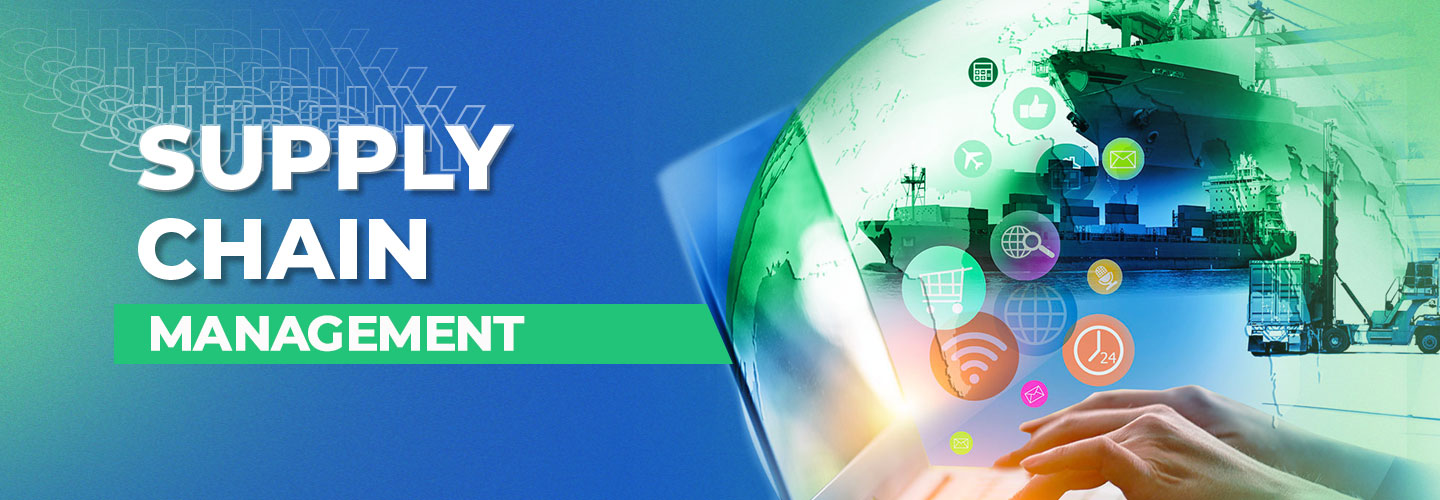ESG Center
Focus on driving sustainable business, practices through expert consulting, training, advising, assistance, and innovative solutions in Environment, Social, and Governance (ESG).

The term supply chain management (SCM) is not a uncommon in business operations, be it manufacturing, retail or wholesale. Also known as supply chain management, its role is important for the smooth flow of production to the distribution of products to consumers.
Certain companies have specific fields that play a role in maintaining the continuity of the company's supply chain. What is real supply chain management? What are the functions and processes of supply chain management in a company?
Supply chain management is the management of the flow of goods, services, and everything that includes the processing of raw materials to become ready-to-use final products. In the manufacturing industry more specifically, supply chain management also includes the distribution channels of products or goods to consumers. The entire process and operational activities of this business require coordination, scheduling and control of procurement, production, inventory.
In addition, supply chain management also manages the process of product delivery and service provision to consumers with a fairly diverse scope of work. Starting from daily administration, business operations, logistics to processing information from consumers to suppliers or vice versa.
In simpler terms, supply chain management is a mechanism that connects all related parties in production activities or service provision. Each related party is responsible for providing goods and products, as well as providing services to consumers in a timely manner in the most efficient and effective manner.
Supply chain management is also a branch of management within a company whose job is to ensure the continuity of the production of goods or products and the provision of services to consumers so that they can run smoothly. This activity involves producers, be they factories or manufacturers, logistics providers to consumers.
What are the functions of supply chain management in particular? Supply chain management has several functions: it is important to note:
Here are supply chain management's process in more detail:
Consumers, as users of the products offered by the company, will make orders, then contact the sales department at the relevant company. This order request contains important information that must be considered by the company, such as the quantity of product requested to be sent and the date of delivery of the product.
After the product request is received by the company, the next process will involve the production planning department. This supply chain management flow needs to ensure the availability of raw and supporting materials in the production process of the goods/products requested.
When the production planning flow in supply chain management has been processed, the need for raw materials needs to be ordered as requested. Detailed information, such as the type and amount of raw materials, supporting materials, and the date of receipt need to be considered.
Receipt of raw materials and supports that have been received by the company will be checked for quality, whether they meet the standards or not. Raw and supporting materials that meet standards are stored as inventories for production needs.
The company's production department will process the raw and supporting materials that have been supplied. Ready-to-use finished goods that have been produced will be stored first, then sent to consumers according to a predetermined schedule.
The shipping or product distribution department will arrange the delivery time for finished goods that are ready. In this stage, the company will prepare an estimated time for receiving goods to the hands of consumers. Consumers can redistribute goods that have been ordered from factories to retailers and retailers.
As technological developments advances, supply chain management adapts to the latest situations and conditions. There are some changes that are tailored to the needs. Under certain conditions, there are changes in business operations to digital platforms. The following is an example of supply chain management for an e-commerce company::
Consumers purchase on the company's related e-commerce site. At this stage, consumers can freely view, select, and purchase the available products.
Completed with the product selection process, the consumer will make an order. Next, the consumer will be asked to complete the payment. Common payment methods chosen by consumers are through electronic wallets (e-wallets) or bank transfers..
Next, the producer will check the goods in the inventory warehouse. This process also includes the packaging of goods..
Delivery or distribution of goods is carried out after the producer has completed the checking and packaging stages. Generally, products purchased through e-commerce will be delivered and distributed through third parties which are logistics companies.
The final stage of e-commerce supply chain management is in the hands of the final consumer. If consumers are satisfied with the product received, it is likely that the supply chain cycle will continue.
Running supply chain management so that it runs smoothly requires qualified competence. Ability to be adaptive in responding to various situations and conditions in the field. Company executives can enhance it through the Supply Chain Management program to get interactive learning from various certified and experienced experts.
INSIGHT AND KNOWLEDGE
RECOMMENDATION ARTICLES